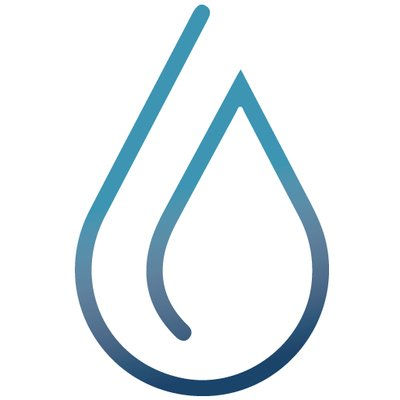预约演示
更新于:2025-07-15

Sinovant Sciences Co. Ltd.
更新于:2025-07-15
概览
标签
消化系统疾病
其他疾病
口颌疾病
小分子化药
疾病领域得分
一眼洞穿机构专注的疾病领域
暂无数据
技术平台
公司药物应用最多的技术
暂无数据
靶点
公司最常开发的靶点
暂无数据
| 排名前五的药物类型 | 数量 |
|---|---|
| 小分子化药 | 3 |
关联
3
项与 上海仑胜医药科技有限公司 相关的药物靶点 |
作用机制 PI3Kα抑制剂 |
在研机构 |
原研机构 |
非在研适应症- |
最高研发阶段临床2期 |
首次获批国家/地区- |
首次获批日期- |
作用机制 5-HT4 receptor拮抗剂 [+1] |
在研机构 |
原研机构 |
最高研发阶段临床2期 |
首次获批国家/地区- |
首次获批日期- |
靶点 |
作用机制 DGAT1抑制剂 |
在研适应症 |
非在研适应症- |
最高研发阶段临床前 |
首次获批国家/地区- |
首次获批日期- |
5
项与 上海仑胜医药科技有限公司 相关的临床试验CTR20230702
一项在中国膀胱过度活动症受试者中评价 Vibegron 有效性和安全性的随机、双盲、安慰剂对照临床研究
主要目的:评价 Vibegron相比安慰剂在中国膀胱过度活动症(OAB)受试者中治疗 12周时在排尿次数方面的疗效。
次要目的:1,评价 Vibegron 相比安慰剂在中国 OAB 受试者中治疗 12 周及 52 周时其他指标评估的疗效。2,评价 Vibegron 在中国 OAB 受试者中的安全性
开始日期2023-03-17 |
申办/合作机构  上海仑胜医药科技有限公司 上海仑胜医药科技有限公司 [+1] |
CTR20200250
SNV004片剂在中国健康受试者中单、多次口服给药后药代动力学特征、安全性和耐受性、药效学评估的临床研究
主要目的:评价SNV004片剂单、多次给药在中国健康受试者中的药代动力学特征 次要目的:评价SNV004片剂单、多次给药在中国健康受试者中的安全性和耐受性 评价SNV004片剂75 mg多次给药在中国健康受试者中的药效
开始日期2020-05-18 |
申办/合作机构 |
CTR20191037
ARQ087在晚期实体瘤及FGFR2融合、一线治疗失败的不可切除、复发/转移肝内胆管癌受试者中安全性有效性研究
本研究分为两阶段,第1阶段主要研究目的为评估ARQ 087在中国晚期实体瘤受试者中的安全性和耐受性,以确认第2 阶段的治疗剂量,同时评估不同研究用药剂量的PK 特征,并初步观察疗效;第2阶段的目的是采用确认的治疗剂量,评估ARQ 087在FGFR2基因融合、接受至少一线系统治疗失败的不可手术切除、复发或转移的中国iCCA 受试者的疗效和安全性。
开始日期2020-04-10 |
申办/合作机构 |
100 项与 上海仑胜医药科技有限公司 相关的临床结果
登录后查看更多信息
0 项与 上海仑胜医药科技有限公司 相关的专利(医药)
登录后查看更多信息
21
项与 上海仑胜医药科技有限公司 相关的新闻(医药)2024-04-01
·药融圈
▲5月30-31日 第八届广州生物医药创新者峰会 扫码立即报名 注:本文不构成任何投资意见和建议,以官方/公司公告为准;本文仅作医疗健康相关药物介绍,非治疗方案推荐(若涉及),不代表平台立场。任何文章转载需得到授权。不断开拓新产品,体系内研发与外延合作并购,加深护城河,才是创新药企长久之道。从药融云数据库获悉,日本住友制药的支柱产品抗精神分裂症药品Latuda的在美独家销售权终止(美国化合物专利2024年2月到期),而这势必会造成公司销售额大幅下滑。早在2019年底,住友制药就与英国Roivant Science制药公司达成协议,向Roivant总公司出资30亿美元,获得Roivant一定比例的股份以及收购旗下几家子公司的选择权。此次合作住友制药不仅可以获得子宫肌瘤治疗药Relugolix,以及泌尿系统疾病治疗药Bevegron的全球销售权,还从Roivant公司获得其在制药及健康管理相关领域的平台和技术支持。2020年底,FDA批准Relugolix用于治疗前列腺癌(商品名Orgovyx),2022年度该产品销售额达到1.82亿美元,成为公司在北美的主要畅销药物之一,而这一未雨绸缪的做法无疑缓解了公司的“专利到期焦虑”。住友制药是有400年商业历史的住友集团的一员,在2005年由大日本制药株式会社和日本住友制药株式会社合并,主要通过医疗药品、再生医学/细胞疗法和非医疗解决方案来为人类生活做出贡献,重点关注精神病学和神经病学、肿瘤学领域。而合并的两个公司历史可追溯到一百多年前。1897年,21位制药行业的杰出领导者在大阪道商町创立了Osaka Pharmaceuticals,第二年在大阪惠边市设立制药工厂,收购了东京的公私合营公司大日本制药株式会社,并将公司名称变更为大日本制药株式会社。日本住友制药株式会社成立于1984年,由住友化学株式会社(成立于1913年)制药业务的研究、开发和制造部门以及住友化学株式会社药品的独家经销商稻畑产业株式会社的药品销售部门组成。住友制药自合并后就接连收购了美国的Sepracor、Boston Biomedical、Elevation Pharmaceuticals和Tolero Pharmaceuticals等公司,并在海外成立子公司。20世纪90年代,公司逐步在中国开展事业,2005年底,住友制药(苏州)有限公司在苏州成立,中国也成为住友集团在除日本和北美外的全球第三大重要市场。此前住友制药在中国有近800名员工,2021年的销售额约20亿人民币。PART1主要产品住友制药的优先研究领域是精神病学、神经病学和肿瘤学,同时,还致力于通过再生医学/细胞疗法和非医疗解决方案为改善医疗保健和人类生活作出贡献。以下是公司各领域的主要上市产品: 分地区来看,在日本,除了精神病学和神经病学领域,还重点关注糖尿病和罕见疾病领域,上年度畅销产品有TRERIEF(zonisamide,唑尼沙胺)、LATUDA(lurasidone,鲁拉西酮)和TWYMEEG(imeglimin);北美地区的畅销产品有ORGOVYX(relugolix)、MYFEMBREE(relugolix + 雌二醇 + norethindrone acetate)和GEMTESA(vibegron);在中国地区专注于传染病,以及精神病学和神经病学领域,主要畅销产品有MEROPEN(美罗培南)。图:各地区畅销药物PART2研发管线(图片信息截至2023年10月31日)1、精神病和神经病学(1)小分子Ulotaront(SEP-363856)是一种 TAAR1(痕量胺相关受体1)激动剂,具有5-羟色胺(血清素)5-HT1A激动剂活性,不与多巴胺D2或5-羟色胺5-HT2A受体结合。前Sunovion公司(2009年收购的美国制药商,现为住友制药子公司)与Psychogenics公司合作,利用其体内表型分析平台SmartCube和相关AI算法发现。目前针对精神分裂症的研究在美国进行到临床试验3期,在日本和中国进行到临床试验2/3期;在美国针对aMDD(辅助性重性抑郁障碍)的研究处于临床试验2/3期;在美国和日本针对GAD(广泛性焦虑障碍)的研究进行到临床试验2/3期;在美国针对帕金森病精神病的研究进行到临床试验2期。Ulotaront于2019年5月被FDA授予治疗精神分裂症的突破性疗法称号,是第一个也是唯一一个进入精神分裂症患者临床试验3期研究的TAAR1激动剂,也是第一个进入GAD的临床试验2/3期研究的TAAR1激动剂,并作为MDD的辅助治疗。2023年7月,住友制药与大冢制药宣布了临床试验3期的DIAMOND 1和DIAMOND 2研究的顶线结果,在患有精神分裂症的剂型精神病成人患者中,每日一次给药未达到其主要终点,在两项研究中,都观察到了较大的安慰剂效应,这可能掩盖了该分子的治疗效果,总体来说该药物是安全的,耐受性良好。药融云数据库:药物基本信息EPI-589有望通过消除线粒体功能降低过度产生的氧化应激而显示出功效,它有望被开发用于由氧化还原应激引起的神经退行性适应症。在美国地区针对帕金森病的研究进行到临床试验2期;针对肌萎缩侧索硬化症(ALS)的研究在美国和日本均进行到临床试验2期(在日本的研究由德岛大学主导)。注:氧化应激(OS) 是指体内氧化与抗氧化作用失衡的一种状态,倾向于氧化,导致中性粒细胞炎性浸润,蛋白酶分泌增加,产生大量氧化中间产物。氧化应激是由自由基在体内产生的一种负面作用,并被认为是导致衰老和疾病的一个重要因素。Sep-378614和SEP-380135是新型的中枢神经系统活性分子,均由Sunovion公司与Psychogenics公司合作,利用其体内表型分析平台SmartCube和相关AI算法发现。Sep-378614的临床前研究表明,它可能具有快速起效的抗抑郁活性。当前在美国研究进行到临床试验1期。SEP-380135的临床前研究显示了广泛的体内活性,表明对痴呆的许多行为和心理症状有效,包括激越/攻击性、精神运动性多动症和抑郁症,当前针对相关适应症的研究在美国进行到临床试验1期。DSP-0038是5-羟色胺5-HT2A受体拮抗剂和5-羟色胺5-HT1A受体激动剂。是住友制药利用Exscientia的人工智能技术发现的一种新型化合物。基于5-HT2A受体拮抗剂和5-HT1A受体激动剂的叠加效应,预期DSP-0038表现出更强的抗精神病作用。该化合物在治疗痴呆(BPSD)的行为和心理症状(包括激越、攻击性、焦虑和抑郁)方面也可能具有更广泛的功效。此外,DSP-0038对多巴胺受体D2的亲和力可忽略不计,因此与现有的抗精神病药物相比,它可以显示出更高的安全性和耐受性。目前在美国针对阿尔兹海默症精神病的研究进行到临床试验1期。DSP-9632P是5-羟色胺5-HT1A受体部分激动剂。可能通过抑制左旋多巴衍生的多巴胺的过度释放,对左旋多巴给药后表达的运动障碍发挥作用。临床前研究表明,DSP-9632P可抑制左旋多巴引起的运动障碍症状。通过稳定的血药浓度,DSP-9632P的透皮贴剂制剂可能成为治疗帕金森病中左旋多巴诱导的运动障碍的有效选择,并且还可能提高患者给药的便利性。在日本针对左旋多巴诱导的帕金森病运动障碍的研究进行到临床试验1期。DSP-0187是一种食欲素2受体激动剂,有望改善由食欲素缺乏引起的发作性睡病的白天过度嗜睡(EDS)和猝倒,也有望证明对除发作性睡病以外的EDS的疗效。在日本针对发作性睡病的研究进行到临床试验1期。住友制药于2022年4月授予Jazz Pharmaceuticals PLC在除日本、中国和某些其他亚太市场以外的地区的独家开发和商业化权利。DSP-3456是一种mGluR2/3 NAM(代谢型谷氨酸受体2/3负变构调节剂)。DSP-3456 有望通过增强谷氨酸释放来选择性激活前额叶皮层,同时避免副作用(精神病症状、认知功能障碍),从而表现出类似氯胺酮的抗抑郁作用。在美国针对难治性抑郁症的研究进行到临床试验1期。DSP-0378是一种γ-氨基丁酸A型受体(GABAA受体)正向变构调节剂,它作用于突触和突触外区域表达的各种GABAA受体亚型,其方式不同于常见的GABAA受体增强剂,例如苯二氮䓬类药物和神经类固醇,预计该药物具有广泛的抗癫痫作用,包括Dravet综合征和Lennox-Gastaut综合征(LGS)等难治性罕见疾病。在日本针对Dravet综合征和Lennox-Gastaut综合征的研究进行到临床试验1期。DSP-2342是一种5-羟色胺5-HT2A和5-HT7受体拮抗剂。基于5-HT2A和5-HT7受体拮抗剂的累加效应,该药物有望显示出更广泛的抗精神病作用,包括精神病、焦虑和抑郁,此外,还对5-HT2A和 5-HT7受体具有高选择性,有望显示出高水平的安全性和耐受性。DSP-2342是住友制药利用Exscientia的AI技术发现的一种新型化合物,当前在美国研究进行到临床试验1期。(2)再生医学/细胞疗法住友制药与合作伙伴合作,开发了针对帕金森病和视网膜色素上皮撕裂的再生医学/细胞疗法,分别是CT1-DAP001/DSP-1083和HLCR011,这两种均是同种异体iPS细胞衍生产品。其中,CT1-DAP001/DSP-1083针对帕金森的研究在日本进行到临床试验1/2期,在美国准备开始临床研究;HLCR011在日本针对视网膜色素上皮撕裂的研究进行到临床试验1/2期。2、肿瘤学TP-3654通过抑制 PIM(Moloney白血病病毒的前病毒整合位点)激酶来抑制炎症信号通路,PIM激酶经常在各种血液系统恶性肿瘤和实体瘤中过表达,使癌细胞逃避细胞凋亡并促进肿瘤生长。FDA于2022年5月授予TP-3654 孤儿药资格,用于治疗骨髓纤维化。在美国和日本针对骨髓纤维化的研究进行到临床试验1/2期。DSP-5336是一种小分子抑制剂,可抵抗Menin(一种肿瘤抑制蛋白)和混合谱系白血病(MLL)蛋白的结合,伴有MLL重排或核磷蛋白1(NPM1)突变的急性白血病主要通过menin-MLL相互作用来上调促白血病发生的基因。DSP-5336 在临床前研究中已被证明具有抗癌活性,通过抑制 meninMLL 相互作用来下调基因。FDA于2022年6月授予DSP-5336孤儿药资格,用于治疗急性髓系白血病,目前在美国和日本的研究进行到临床试验1/2期。DSP-0390是EBP(依莫帕米结合蛋白)抑制剂, EBP是一种参与胆固醇生物合成的内质网膜蛋白,大多数癌细胞的特征是负责其生物合成的各种通路上调,并且对支持细胞增殖的胆固醇需求很高,因此,DSP-0390对EBP的抑制预计会导致胆固醇稳态的破坏并诱导癌细胞死亡。FDA于2022年5月授予DSP-0390孤儿药资格,用于治疗脑癌,目前在美国和日本针对胶质母细胞癌的研究进行到临床试验1/2期。TP-1287是一种小分子口服药物,可抑制CDK9(细胞周期蛋白依赖性激酶9)。TP-1287在临床前研究中显示出良好的口服生物利用度可以产生一种有效的CDK9抑制剂。FDA分别于2023年2月和3月授予了TP-1287儿科罕见病资格认定和孤儿药认定,用于治疗尤文肉瘤(也称尤因肉瘤)。TP-1454通过酶的四聚化诱导PKM2(丙酮酸激酶M2)的活性,该酶主要以酶活性较低的二聚体状态存在于癌细胞中,PKM2 的四聚化导致癌细胞中有氧糖酵解的减少并恢复免疫抑制微环境,TP-1454有望与免疫检查点抑制剂显示出协同作用。目前TP-1287和TP-1454在美国针对实体瘤的研究均进行到临床试验1期。3、其他Lefamulin是一种截短侧耳素类抗菌剂,可通过静脉注射或者口服给药,其作用机制为抑制细菌生长所必须的蛋白质的合成。Lefamulin最初由Nabriva Therapeutics开发,在美国,FDA于2019年8月批准了XENLETA(Lefamulin,来法莫林)用于治疗CAP(社区获得性细菌性肺炎)成年患者,由Nabriva Therapeutics在美国地区销售。2018年3月,仑胜医药获得在大中华区(包括中国大陆、香港、澳门、台湾省)开发和商业化lefamulin的权利。2021年5月7日,住友制药与仑胜医药签订资产转让协议,住友制药(苏州)获得仑胜医药持有的包括lefamulin在内的多个在研新药在大中华区的独家研发和销售权。2021年10月,住友制药在中国提交了Lefamulin的新药上市申请,2023年11月14日,国家药品监督管理局(NMPA)批准了XENLETA(Lefamulin,醋酸来法莫林注射剂和片剂)用于治疗成人社区获得性肺炎。图片来源:国家药品监督管理局Vibegron是一种口服小分子β3肾上腺素能受体激动剂,选择性作用于膀胱中的β3肾上腺素能受体,使膀胱松弛,增强尿液储存,并改善膀胱过度活动症(OAB)患者的尿急、尿频和急迫性尿失禁症状。2020年12月,Urovant Sciences(2019年12月住友制药从Roivant公司收购)的Gemtesa(vibegron,维贝格龙)在美国获得了膀胱过度活动症的批准。目前在中国针对膀胱过度活动症的研究进行到临床试验3期;在美国针对BPH(良性前列腺增生)男性膀胱过度活动症的研究也进行到临床试验3期。SP-101是一种新型的腺相关病毒(AAV)载体,可有效地从顶端(管腔)表面转导人气道上皮细胞,它旨在将缩短但功能齐全的CFTR(囊性纤维化跨膜传导调节因子)基因传递给CF(囊性纤维化)患者的气道。基于临床前数据,阿霉素的加入显著改善了SP-101转导和随后CFTR基因的表达,目前正在开发SP-101和阿霉素通过喷雾器给药的联合产品,SP-101有望恢复CFTR功能并改善CF患者肺部的疾病,在美国针对囊性纤维化的研究进行到临床试验1/2期。KSP-1007可抑制β-内酰胺酶,该酶由可降解碳青霉烯类抗生素的细菌产生。KSP-1007与美罗培南水合物(一种全球通用的碳青霉烯类抗生素,住友制药在国内市场的产品名称为Meropen)联合用药,有望成为治疗耐碳青霉烯类细菌感染的有效选择。FDA于2022年8月授予KSP-1007合格传染病产品(QIDP)资格和快速通道指定,用于复杂性尿路感染、复杂性腹腔内感染、医院获得性细菌性肺炎和呼吸机相关性细菌性肺炎的适应症。目前在美国针对复杂性尿路感染和复杂性腹腔内感染的研究进行到临床试验1期。自合并后,住友制药一直致力于实现业务全球化,当前在日本、北美、中国和亚洲设有本地总部、销售和开发职能部门,并从事地区特色的销售营销活动。以下是研究开发机构全球分布图:PART3财务状况2022财年(2022.04~2023.03)住友制药的收入为5555亿日元(38.5亿美元,均以1.00美元=144.34日元计算),与上年同期相比降低了0.8%。核心营业利润164亿日元(1.14亿美元);营业利润为(亏损)770亿日元(5.34亿美元);税前利润(亏损)479亿日元(3.32亿美元),净利润(亏损)967亿日元(6.70亿美元)。2023前两个季度收入1526亿日元(10.8亿美元),与上年同期相比下降52.2%,收入下降的主要原因是LATUDA(鲁拉西酮)在美国的独家经营权丧失,住友制药食品化学株式会社转让。尽管销售、一般和行政费用比预期减少,但集团公司在北美的合并,以及住友制药动物保健株式会社股份转让产生的其他收入,由于收入下降导致毛利大幅下降,截至2023年9月30日止六个月的核心营业利润为(亏损)658亿日元(4.56亿美元)。尽管前六个月确认的减值亏损主要为专利权,但由于核心经营亏损及北美业务结构改善的开支,营业利润(亏损)为865亿日元(5.99亿美元),较去年同季有所增加。由于日元贬值导致的外汇收益被营业利润的下降所抵消,公司税前利润(亏损)为561亿日元(3.89亿美元)。由于税前亏损,净亏损较去年同期有所增加,净利润(亏损)为677亿日元(4.69亿美元),而截至2022年9月30日的六个月为152亿日元(1.05亿美元)。分地区来看,日本地区销售额为585亿日元(4.05亿美元),与上年同期相比下降了40.3%;北美地区销售额733亿日元(5.08亿美元),同比下降62.5%;亚洲地区销售额为208亿日元(1.44亿美元),同比下降19.5%。PART4中期破局经营计划(2023~2027)2019年,住友制药制定了新的愿景,并励志成为一家能够满足日益多样化的医疗保健需求的公司,公司的目标是到2033年将自己打造成全球化专业企业。短期来看,公司制定了2027年中期经营计划,该计划从2023年开始实施,在中期经营计划的第一年,住友制药预计核心营业亏损为620亿日元(4.30亿美元),因为LATUDA(鲁拉西酮)在美国的独家销售期结束,销售额将几乎归零。在这种情况下,住友制药将努力建立支持持续增长的收入基础,主要是通过最大限度地提高三个主要产品(ORGOVYX、MYFEMBRE、GEMTESA)的业务,并通过研发改变其业务结构,以业务形式将公司的创新付诸实践。同时,将以美国集团公司合并为契机,重新设计集团运营结构,努力向灵活高效的业务基础转变。在北美,公司的目标是到2024财年实现4600亿日元(31.9亿美元)的收入和400亿日元(2.77亿美元)的核心营业利润。同时还设定了从2023财年开始,到2027财年的收入复合年增长率至少为12%的目标,以及从2024财年到2027财年的累计核心营业利润至少为1920亿日元(13.3亿美元)的目标。以下是公司中期经营计划财政目标:参考:NMPA/CDE;药融云数据,www.pharnexcloud.com;FDA/EMA/PMDA;相关公司公开披露(除标注外,正文图片均来自企业官网);https://www.sumitomo-pharma.com/;https://www.sumitomo-pharma.co.jp/;https://www.vbdata.cn/newsDetail/f04332a4f4d45697e3814b64f1a8367c;https://xueqiu.com/5603603160/138434661;https://www.jiemian.com/article/3494847.html;等等。本文仅用于向医疗卫生专业人士提供科学信息,不代表平台立场,不作任何用药推荐 活动推荐 8月 • NDC2024生物医药创新博览会 关键词: 抗体、多肽、核酸、核药,XDC、小分子、注册、临床、CMC(点击下方图片查看详情)▼【关于药融圈】药融圈PRHub旨在帮助生物医药科技型企业进行品牌推广及商务拓展服务,针对客户的真实需求制定系统化解决方案,通过“翻译-降维-场景化”将客户的品牌信息以直白易懂的方式被公众知悉,同时在流量渠道覆盖100万+垂直用户基础上实现合作目的,帮助合作伙伴完成从品牌开始到商务为终的闭环营销服务。我们已经完成了数十场线下1000人规模的生物医药研发类会议,涵盖小分子新药,大分子新药,改良型新药,BD跨境交易等多个领域,服务了百余家上市/独角兽/生物技术/制药企业。
并购专利到期细胞疗法
2023-11-17
·即刻药闻
▎药明康德内容团队报道 今日(11月17日),中国国家药品监督管理局(NMPA)官网最新公示,由住友制药(Sumitomo Dainippon Pharma)和Nabriva Therapeutics联合申报的来法莫林(曾用名:拉法姆林)已获批上市,包含口服片剂和静脉注射液两种剂型。根据住友制药早前发布的新闻稿,来法莫林(lefamulin)是一种不易产生耐药及交叉耐药的新型抗感染药物,此次在中国获批的适应症为成人社区获得性肺炎。截图来源:NMPA官网公开资料显示,来法莫林最初由Nabriva公司开发,仑胜医药于2018年获得在大中华区开发和商业化该产品的权利。2021年5月,通过与仑胜医药、Nabriva公司等签订资产转让协议,住友制药获得来法莫林在中国的独家研发和销售权。从作用机制来看,来法莫林是一种创新截短侧耳素(pleuromutilin)类抗生素,可以通过静脉注射或者口服给药。通过与细菌核糖体的肽基转移酶中心(PTC)相结合,它能够抑制细菌的蛋白合成,从而达到抑制细菌生长的效果。此外,来法莫林能够有效地靶向造成呼吸道疾病的病原体(包括多重耐药性菌株),同时细菌不容易对它产生抗性,而且不会因为它而产生对其它类型抗生素的抗性。此前,美国FDA、加拿大卫生部及欧洲药品管理局(EMA)已经批准来法莫林用于成人社区获得性细菌性肺炎的治疗。该产品还曾获得FDA授予的优先审评资格、快速通道资格和合格传染病产品(QIDP)资格。此前,来法莫林曾在一项针对中国成人社区获得性细菌性肺炎(CABP)患者进行的随机、双盲、双模拟的多中心注册临床研究中,显示出良好的有效性、安全性以及耐受性。研究结果表明,患者在接受来法莫林静脉注射剂转口服治疗后,研究者评估的临床应答成功率非劣于对照组(76.8% vs 71.4%),达到预设的主要终点。在改良意向治疗(mITT)人群中,来法莫林在治愈试验(TOC)的研究者临床反应评估(IACR)中达到了非劣效于对照组的主要终点(76.8% vs 71.4%)。此外,研究中来法莫林普遍安全且耐受性良好,治疗中紧急不良事件(TEAE)总发生率与对照组相当,大多数TEAE严重程度为轻中度。肺炎是全球传染病死亡的主要原因之一,其严重程度分为从轻微到严重不等,可以影响所有年龄层的人群。据文献报道,社区获得性肺炎(CAP)是指在医院外罹患的感染性肺实质炎症,可由细菌和不典型病原体得混合感染引起。随着细菌对抗生素的抗性不断增强,社区获得性肺炎患者迫切需要安全有效的新治疗选择。希望此次住友制药引进的新型抗感染药物来法莫林在中国获批,能够为更多患者带来新的治疗选择。参考资料:[1]2023年11月17日药品批准证明文件送达信息发布,Retrieved Nov 17, 2023. From https://www.nmpa.gov.cn/zwfw/sdxx/sdxxyp/yppjfb/20231117153443158.html[2]住友制药新药拉法姆林上市申请获受理,用于治疗社区获得性肺炎. Retrieved Nov. 29,2021, from https://mp.weixin.qq.com/s/aFeSUjIeS6e6kxFVHXrT3A[3]仑胜医药宣布CABP的来法莫林3期试验取得了积极的初步结果. Retrieved May. 28,2021, from https://www.prnasia.com/story/320276-1.shtml[4]住友制药(苏州)获得Sinovant持有的多个在研新药权益转让. Retrieved May. 7,2021, from http://www.dsmpharm.com.cn/important_news_ny.html?id=77本文来自药明康德内容团队,欢迎个人转发至朋友圈,谢绝媒体或机构未经授权以任何形式转载至其他平台。转载授权请在「医药观澜」微信公众号留言联系我们。其他合作需求,请联系wuxi_media@wuxiapptec.com。免责声明:药明康德内容团队专注介绍全球生物医药健康研究进展。本文仅作信息交流之目的,文中观点不代表药明康德立场,亦不代表药明康德支持或反对文中观点。本文也不是治疗方案推荐。如需获得治疗方案指导,请前往正规医院就诊。
优先审批快速通道合格传染病产品
2022-06-28
On the same day Roivant Sciences announced the formation of autoimmune-focused Priovant Therapeutics in collaboration with Pfizer, the company also revealed that it has discontinued development of several assets following a pipeline reprioritization.
In its fourth quarter and year-end financial announcement, Switzerland-based Roivant said it has discontinued several programs that have been under development by its various Vant subsidiaries. Roivant said the discontinuations will allow it to more fully focus its capital resources on the “potentially most valuable and meaningful opportunities for patients in our pipeline, including our programs for newly launched Priovant.”
Discontinued programs include ARU-1801, LSVT-1701, DMVT-502, DMVT-503, DMVT-504 and CVT-TCR-01. ARU-1801, an investigational gene therapy for sickle cell disease and β-thalassemia, was being developed by Aruvant Sciences. Aruvant said it was winding down the program after considering the costs to successfully bring it through all phases of clinical testing.
Dermavant is in the process of closing out the development of DMVT-502 for vitiligo and atopic dermatitis, DMVT-503 for acne and DMVT-504 for hyperhidrosis. The Roivant subsidiary said it will instead focus on the launch of VTAMA, a topical treatment of plaque psoriasis approved by the U.S. Food and Drug Administration in May. Dermavant hinted that VTAMA, the first steroid-free topical medication in its class, has the potential for blockbuster status, with annual earnings of $1 billion or more. VTAMA is also being assessed in a Phase III study in atopic dermatitis.
Cytovant, a partnership between Roivant and Hong Kong-based Sinovant Sciences, halted the development of CVT-TCR-01, the company’s lead TCR-T program. The other program culled by Roivant was the bacteriophage-encoded lysin LSVT-1701.
While the development of those assets has been terminated, Roivant said it anticipates 10 or more pivotal or pivotal-enabling trials to be ongoing by the end of 2022. Seven of those have already been initiated, the company said. Subsidiary Immunovant launched a single potentially registrational Phase III trial assessing batoclimab for the treatment of myasthenia gravis. Topline results are expected in the second half of 2024. Immunovant also plans to initiate two Phase III trials to evaluate batoclimab for the treatment of thyroid eye disease in the second half of this year.
Another subsidiary, Hemavant, has begun an open-label Phase I/II study evaluating RVT-2001 for the treatment of transfusion-dependent anemia in lower-risk myelodysplastic syndrome patients. That study has a target enrollment of 64 patients with SF3B1 mutations. Data is expected to be announced next year. In April 2022, Kinevant initiated a Phase II trial evaluating namilumab for the treatment of sarcoidosis. Topline data is expected in 2024.
In its year-end report, Roivant said it maintains $2.1 billion in cash and cash equivalents. Those funds, plus the financing it will save from terminating the development of those programs, will allow the company to maintain financial flexibility, Roivant said.
“With $2.1 billion in cash, we are fortunate to operate from a position of financial strength, with a projected cash runway of over two years, to aggressively advance our existing programs while opportunistically adding new ones in the future. We continue to focus our capital allocation on the most meaningful opportunities for patients, including newly launched Priovant, while remaining cognizant of the current external environment and prioritizing our spend to deliver the highest return for shareholders,” Roivant Chief Executive Officer Matt Gline said in a statement.
基因疗法
100 项与 上海仑胜医药科技有限公司 相关的药物交易
登录后查看更多信息
100 项与 上海仑胜医药科技有限公司 相关的转化医学
登录后查看更多信息
组织架构
使用我们的机构树数据加速您的研究。
登录
或

管线布局
2025年11月11日管线快照
管线布局中药物为当前组织机构及其子机构作为药物机构进行统计,早期临床1期并入临床1期,临床1/2期并入临床2期,临床2/3期并入临床3期
临床前
1
2
临床2期
其他
4
登录后查看更多信息
当前项目
| 药物(靶点) | 适应症 | 全球最高研发状态 |
|---|---|---|
Naronapride dihydrochloride ( 5-HT4 receptor x D2 receptor ) | 胃食管反流 更多 | 临床2期 |
SNV002 ( PI3Kα ) | 胆管癌 更多 | 临床2期 |
RVT-503 ( DGAT1 ) | 寻常痤疮 更多 | 临床前 |
维贝格龙 ( β3-adrenergic receptor ) | 膀胱过度活动症 更多 | 终止 |
德拉替尼 ( FGFR1 x FGFR2 x FGFR3 ) | FGFR2阳性肝内胆管癌 更多 | 终止 |
登录后查看更多信息
药物交易
使用我们的药物交易数据加速您的研究。
登录
或

转化医学
使用我们的转化医学数据加速您的研究。
登录
或

营收
使用 Synapse 探索超过 36 万个组织的财务状况。
登录
或

科研基金(NIH)
访问超过 200 万项资助和基金信息,以提升您的研究之旅。
登录
或

投资
深入了解从初创企业到成熟企业的最新公司投资动态。
登录
或

融资
发掘融资趋势以验证和推进您的投资机会。
登录
或

生物医药百科问答
全新生物医药AI Agent 覆盖科研全链路,让突破性发现快人一步
立即开始免费试用!
智慧芽新药情报库是智慧芽专为生命科学人士构建的基于AI的创新药情报平台,助您全方位提升您的研发与决策效率。
立即开始数据试用!
智慧芽新药库数据也通过智慧芽数据服务平台,以API或者数据包形式对外开放,助您更加充分利用智慧芽新药情报信息。
生物序列数据库
生物药研发创新
免费使用
化学结构数据库
小分子化药研发创新
免费使用

